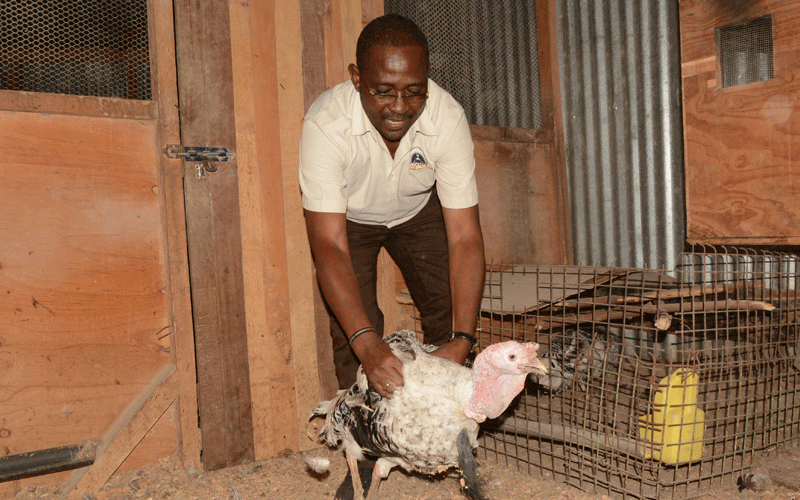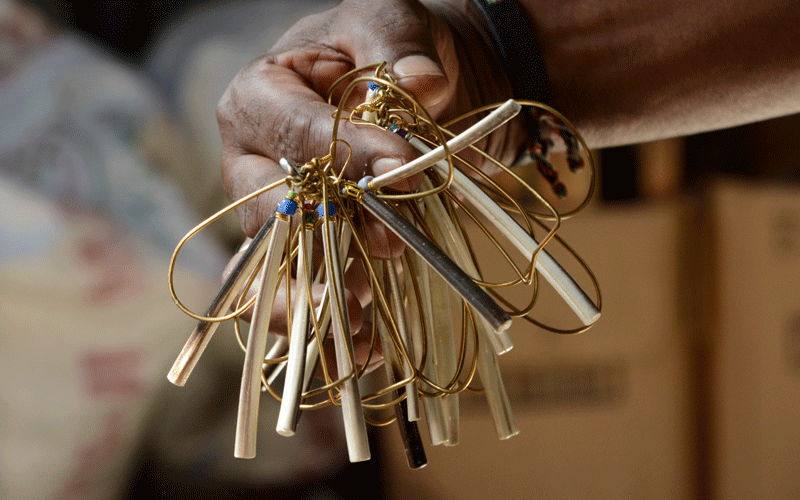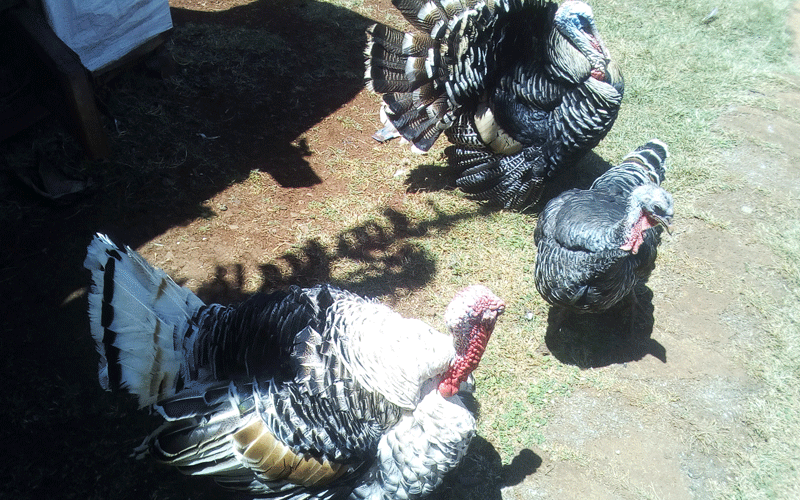Lucrative business, rearing chicks, born out of turkey gift
By Milliam Murigi, January 21, 2020
For many years, Peter Oywaya was an indigenous chicken farmer. One day in 2003, his wife brought home three turkey chicks, about one month old.
With no knowledge about the birds and how they should be reared, he kept them together with his chicken in a pen and continued with his construction businesses. Little did he know that that was the greatest mistake he made.
Two months later one turkey died. “If there is a reason to keep chickens and turkey apart, it is blackhead disease.
It is one of the most common bird diseases and spreads fast among chicken and turkey.
Of the two birds, chickens are less susceptible; turkeys do not often survive an outbreak,” he says of what he later came to learn about blackhead disease.
This made him start researching on the birds. He did not even know how to tell the bird’s gender.
After visiting different farmers who reared turkeys he learned that the remaining two turkeys were a Tom (male) and a Hen (female).

After acquiring this information he separated the turkey from the chicken and started taking care of them.
Five months later, the hen started laying. Later it hatched about 10 chicks (also called poults) but all of them died.
Poults from the second hatching didn’t survive either. “Turkeys are not as good mothers as chicken since they don’t feed the poults.
For their survival, I had to put up an incubator for the third hatching and out of the 10 chicks hatched five survived.”
His thirst for more knowledge didn’t end in local farms. He visited other farmers in other counties and even in Uganda where turkey farming has been embraced by many.
Given the new knowledge, Oywaya, realised that it could be a profitable business.
With only the family of seven birds, he decided to try turkey farming in large-scale after he realised that almost all local farmers were doing it on a small-scale.
This is how Kusev Farm, an indigenous turkey farm located in Kiserian, Kajiado county, was born.
New business model
Five years later he had so many turkeys that he had to get a farmhand to care for them. He also started selling the mature birds and poults to individuals.

Since there are a good number of myths when it comes to the slaughtering of turkeys, most customers preferred to find the meat ready rather than going with live birds, so he started slaughtering for them.
Without a waste management plan, his compound was so full of feathers and droppings he had to do something.
Since he loves art, he realised that there is an opportunity for turning the waste feathers into beautiful ornaments.
Lacking knowledge on how to do it, he had to do research online. Later he started designing and making ornaments from the feathers.
“So far, we have secured a market for our products locally and internationally.
I am the one who designs them and they are sold on a franchise model so they are made on order,” he boasts.
However, things didn’t turn out as expected because during the 2017 General Election, the country experienced political jitters and road closures by demonstrators, which affected many customers and saw a decline in tourist arrivals.
Oywaya lost his market and incurred huge losses. He had slaughtered many birds anticipating good sales in New Year, which either went bad or he had to give out to friends.
After the experience he had to change his business model, so he decided to go fully into chicken meat processing. The aim was a more sustainable clientele base.

It was not easy. First, he had to get access to a licensed slaughterhouse. Secondly, he needed a Kenya Bureau of Standards (Kebs) mark of certification for him to reach his target market, which includes high-end hotels and individuals seeking healthy turkey meals.
Oywaya finally received the Kebs mark recently and is now looking for the high-end hotels market.
He has also attended classes where he learnt how to make different types of sausages.
Currently, he is making different types of sausages for sale to individuals as well as hotels. His sausages and hot dogs both retail at Sh420 while burgers cost Sh600, all for a pack of six.
Peter, who is a farmer and not a breeder, admits the business has many challenges. with diseases being the main challenge.
Turkeys’ have low immunity compared to chicken, yet most veterinaries are not conversant with the birds, making their healthcare difficult. “Luckily, most of the diseases can be controlled,” he says.
He uses turkey droppings for organic farming, growing fruits and vegetables. This takes care of turkey waste.
Another challenge is that there are no feeds specifically made for turkeys, so one has to buy chicken feed and supplements separately.
“If you want to be safe from turkey diseases, observe cleanliness and always ensure that your birds have fresh water every day. Also, vaccinate them to make them less vulnerable to illnesses,” he advises.